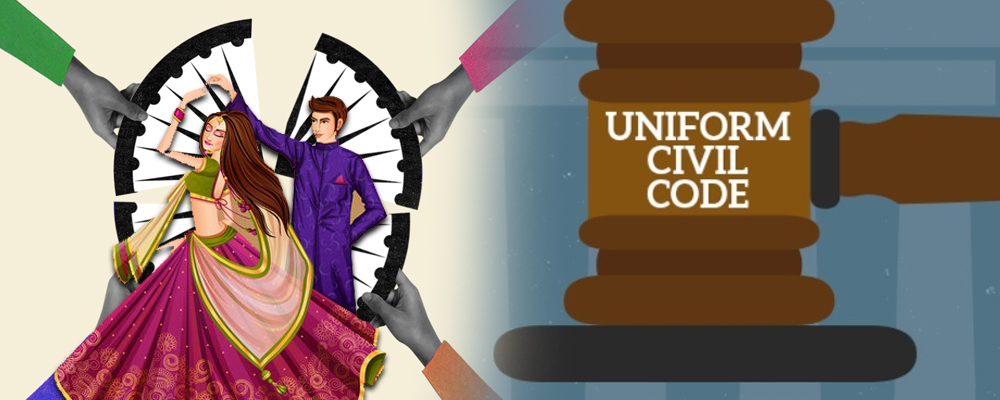A uniform civil code is said to be one nation code that exists uniformly or is applicable to the entire country, it signifies that all the segments of the country such as religion, society, etc shall be considered equal in the entire country as per this code, this code also deal in marriage, divorce, support, adoption, inheritance, etc
Article 44 of the Indian constitution this article joins various kinds of cultures together, the statement given by Dr. B.R. Ambedkar the uniform civil code is very much needed but for a certain time being in force at the time the Indian constitution was being drafted. The British Government from the year 1835, focused on the necessity of a uniform civil code in Indian law that concerns the crimes, evidence, and contract and the was an exception to it and that was it discluded the personal laws, but the Indian government in the year 1941 established the B N Rau committee for the codification of the Hindu law as there was the increase in the legislation due to the personal issue at the end of the British rule and after the review of 1937 acts the uniform civil code of marriage and succession for the Hindus were suggested.
The laws In India were made carefully by keeping the personal laws, tradition, and religion, the personal laws of Hindus and Muslims were derived from the ancient texts which are still being worshipped by these communities, Hinduism personal laws involve legal matters such as inheritance, succession, guardianship, marriage, adoption and so on.
Need A Legal Advice
The internet is not a lawyer and neither are you. Talk to a real lawyer about your legal issue

And for Islamic personal laws, the roots are derived from the Quran and are applicable to the matters such as wills, marriage, dowry, custody, divorce, inheritance, etc.
Let’s understand this with a landmark case that is Shah Bano Case 1985, for more such legal queries, you can ask the free question on LeadIndia.law where you will be guided by legal experts, this case of Shah Bano is also known as or it is better known as Mohammad Ahmed Khan V. Shah Bano Begum, in the year 1985 she moved to the Apex Court to request for the maintenance under the section 125 of the Code of Criminal Procedure after the triple talaq was given to her by her husband as he refused to pay the maintenance, this section 125 of the Criminal Procedure Code this law is applicable for all the citizens despite of the religion and the honorable Supreme Court found it in favor of the Shah Bano and the chief justice Y.V Chandrachud stated that a common civil code can aid the national integration by removing the barriers.
This is the second time the Supreme Court has ordered the government under Article 44. The Sarla Mudgal v. India Coalition case raised the question of whether Hindu husbands married under Hindu law can remarry after converting to Islam.
According to the Supreme Court, it is illegal to adopt Islam for remarriage. Moreover, Hindu marriages can be dissolved under her 1955 Hindu Marriage Act, and simply converting to Islam and remarrying is not enough to end Hindu marriages. means no. This violates Section 494[5] of the Indian Penal Code.
Any person who has any query can contact lead India where they can ask a free questions, take free legal advice, talk to lawyers, and also can assign the best lawyer in their particular area, such as people of Delhi can get the best lawyer in Delhi, people of Mumbai can get the best lawyer in Mumbai and so on.





 Talk to a Lawyer
Talk to a Lawyer